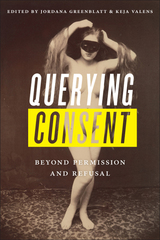
Along with the classic essays that established her place in literary scholarship, this Reader makes available a selection of Johnson's later essays, brilliantly lucid and politically trenchant works exploring multilingualism and translation, materiality, ethics, subjectivity, and sexuality. The Barbara Johnson Reader offers a historical guide through the metamorphoses and tumultuous debates that have defined literary study in recent decades, as viewed by one of critical theory's most astute thinkers.


Passing Lines seeks to stimulate dialogue on the role of sexuality and sexual orientation in immigration to the U.S. from Latin America and the Caribbean. The book looks at the complexities, inconsistencies, and paradoxes of immigration from the point of view of both academics and practitioners in the field.
Passing Lines takes a close look at the debates that surround eyewitness testimony, expertise, and advocacy regarding immigration and sexuality, bringing together work by scholars, activists, and others from both sides of the border.

READERS
Browse our collection.
PUBLISHERS
See BiblioVault's publisher services.
STUDENT SERVICES
Files for college accessibility offices.
UChicago Accessibility Resources
home | accessibility | search | about | contact us
BiblioVault ® 2001 - 2024
The University of Chicago Press









